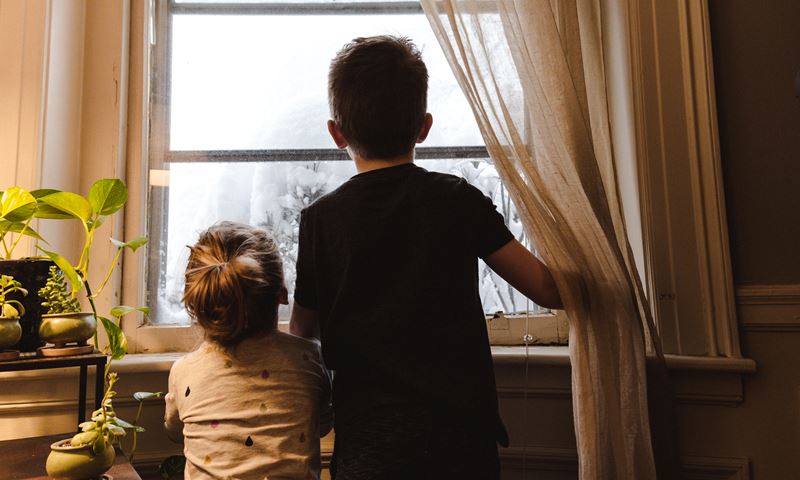With news and media coverage about COVID-19 on a 24-hour cycle, it’s normal for children to also feel overwhelmed and stressed about what’s going in the world right now. However, there are many great organisations and resources available to help you navigate through parenting at this time.
To understand how to best support children and reduce their worry and distress, we have sourced information from Emerging Minds, a dedicated body for promoting mental health and emotional wellbeing in Australian infants, children, adolescents and their families. They have issued advice aligned with the World Health Organisation’s response to helping children cope.
We also spoke to two young GMHBA members, Archie 8, and Jem 12, to better understand and capture the viewpoints of children.
What type of response will you expect from children?
Children may respond to stress in different ways such as being more clingy, anxious, withdrawing, angry or agitated. This is a confusing time for their young minds.
Keep in mind that the out of character tantrums or over the top reactions to a situation may be the child acting out their stress and worry – even if they can’t put it into words at the time.
Archie told us, “I feel scared and stressed. I feel scared because it might get to my friends and family. I feel stressed because things are different to normal.”
“I'm worried for other people like older people who might be more affected, but I'm not worried about me because I know that nothing really will happen,” says Jem.
How can you respond to your kids distress and worry?
- Listen to what they are concerned about, let them lead the discussion and ask any questions and talk about conclusions they may have drawn from what they’ve seen on the news.
- Respond to children’s reactions in a supportive way, repeat back what you’ve heard to show you are listening. Reassuring them may also consist of correcting misinformation to alleviate any unnecessary worries.
- Make sure your children feel safe – during these difficult times they will need extra time, love and attention. Speak kindly and honestly with them, and ask what you can do to help make them feel better.
How can you keep children informed in a positive way?
Provide facts about what has happened, explain what is going on now and give them clear information about how to reduce their risk of being infected by the disease in words that they can understand, depending on their age.
Check out Kids Helpline for health info, mental health tips and ideas to decrease anxiety for children who may be feeling anxious during this time. Kids Helpline is available 24/7 to answer your call on 1800 55 1800, email or web chat.
You can also provide information in a reassuring way about what could happen (such as a family member not feeling well and may have to go to the hospital for some time, so doctors can help them feel better). Don’t be afraid to discuss it.
And remember, take time out from social media and news reports yourself. Use this time with your family to develop stronger relationships and learn more about each other.
How can you create a feeling of ‘normality’ in a day?
If possible, make opportunities for children to play and relax. It can look like:
- Family board games and puzzles.
- Cooking a family meal or treat together.
- Going on morning and afternoon walks around the block. Try spotting something different that you notice on each walk!
- Have a picnic in your backyard or living room.
- Make a fort and have a sleepover in your living room.
Archie and Jem are keeping busy with crafts, basketball, riding bikes, painting, and learning. “I use my iPad for learning,” said Archie.
Jem told us “As a family we set up a plan for what we are going to do each day or week to stay healthy.”
Archie and Jem’s parents added “Our family sat down last night and got a big piece of paper for mental health, physical health, learning/education and family time/me time. We all wrote ideas on how we are going to work together to get through our home isolation. The kids were really into it, and it will be a great way to reinforce off-screen time.”
Try keeping to regular or new routines and schedules as much as possible, as well as time for safely playing and relaxing. And don’t forget to take time out for yourself too.



